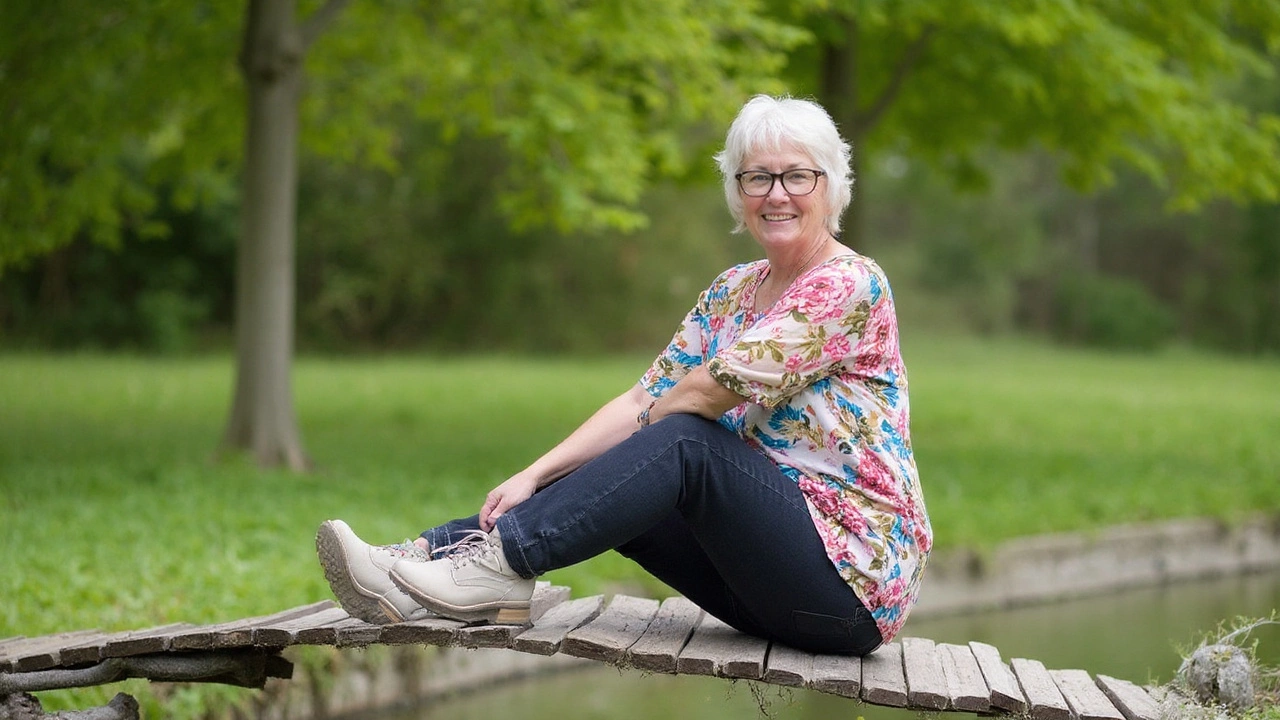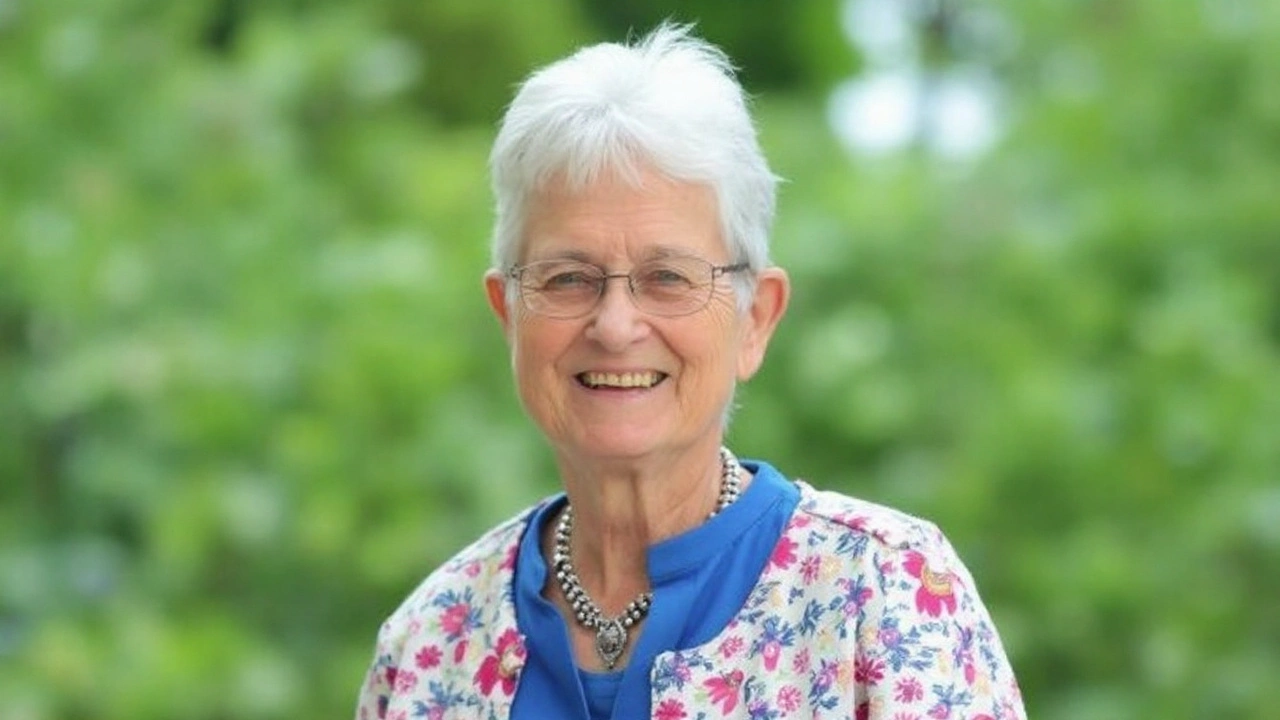Ellie, Nadine, and Magda grew up. So did the readers who first met them. Now they’re pushing 40, and Jacqueline Wilson has brought them back in Think Again, an adult sequel to the 1990s ‘Girls’ books that made her one of Britain’s most read children’s authors. It’s a bold shift in label, but not in heart. The voice, the empathy, and the messy honesty that defined the originals are still here—only this time the fallout involves careers, co-parenting, and middle-of-the-night worry rather than school discos and first crushes.
Wilson, speaking on BBC Radio 2’s The Scott Mills Breakfast Show, put it simply: “There are two of me … I love writing children’s books … but it’s been so exciting … I revisited three teenage girls that I’d written about in the 1990s and now, God help them, they’re pushing 40. I thought, What fun it would be to actually write about them in an adult novel.” That impulse—to find out what happened next—powers the book. The trio who once navigated one turbulent school year in Girls in Love, Girls Under Pressure, Girls Out Late, and Girls in Tears are now strangers to their 13-year-old selves, and in many ways, still exactly the same.
What Think Again changes — and what it doesn’t
The biggest headline is the label. This is adult fiction. Wilson allows in things that sat offstage in the original series: a few swear words, frank references to sex, and the kind of tension that comes with mortgages, childcare, and relationships that don’t fit into tidy life plans. None of it is graphic. Reviews so far call it relatively tame by adult standards, which makes sense—Wilson’s storytelling has always leaned on character and feeling rather than shock.
Ellie Allard, the awkward, artistic narrator readers remember, is now a mother to Lottie. She still hides in books when life gets loud—Mrs Dalloway, not TikTok—and she still sizes up the world with that prickly, sometimes judgmental honesty that made her voice so distinct. That trait has drawn debate: is Ellie being snobbish about phone scrolling, or just clinging to the rituals that make her feel like herself? Wilson doesn’t scold either side. She lets Ellie be Ellie, the way she always did.
Nadine and Magda, too, feel like real adults formed by their teenage foundations. Nadine’s wary independence and Magda’s warmth and bravado land differently in their late 30s than they did at 13. The book pays attention to how friendships stretch across decades—how you can love someone fiercely and still not know the details of their day-to-day life anymore. There’s nostalgia, yes, but not as a filter. These women are not frozen in time. Jobs shift. Bodies change. Families take strange shapes. Wilson treats all of that as normal, not a twist.
The tone will be familiar to anyone who grew up with the ‘Girls’ books: close-in, character-first, and open about emotion without getting syrupy. Wilson’s gift has always been to make ordinary life feel dramatic and consequential. In the 1990s, that meant first kisses, fallout with friends, and the sudden realization that alcohol can be more trouble than fun. In 2025, it means the text that doesn’t ping back, the bill that lands on the worst day, and the long tail of choices made at 18, 28, and 38.
The adult framing also lets Wilson sit with themes she’s threaded through her career—mental health, class, the gap between who we want to be and what we can afford—without having to translate every worry for a young reader. Even then, she avoids cynicism. Problems are real. People try anyway. That’s her lane.
For longtime fans, this is also a reunion story. The original quartet—Girls in Love, Girls Under Pressure, Girls Out Late, and Girls in Tears—followed one school year of crushes, friendship drama, and hard lessons about body image, jealousy, and risk. Those books became cult reading for a reason: they didn’t lecture. They showed consequence, then left space for readers to decide how they felt. That approach holds in Think Again. The stakes look different, but the emotional math is the same.

Why Wilson is revisiting her backlist now — and what’s next
There’s a practical logic here. The teenagers who read the ‘Girls’ books in the late 1990s and early 2000s are now late 30s or 40-ish themselves—the exact age as Ellie, Nadine, and Magda. Wilson isn’t just chasing nostalgia. She’s writing for readers who want to see their own stage of life with the same candor she gave them as kids. It’s the same move that made My Mum Tracy Beaker click: characters age up, the world changes around them, and the storytelling follows.
Wilson says she’s not leaving children’s books behind. Think Again reads like an expansion, not a pivot. The language is simple and clear, the structure unfussy, and the beats rely on relationships rather than twists. It’s a reminder that “adult” can describe audience rather than style. You can write about sex, money, and mental health without turning cynical or dour, which is very much Wilson’s brand.
That blend—new terrain, familiar voice—has momentum. Wilson has already announced another adult sequel: Picture Imperfect, out August 28, 2025. It returns to The Illustrated Mum, her 1999 novel that won major awards and became a touchstone for how children’s fiction can handle mental health with care. Back then, the story centered on sisters Dolphin and Star and their mother, Marigold, whose bipolar disorder made home life loving but unpredictable. Picture Imperfect catches up with Dolphin and Star as adults, long past the bruises and bright spots of that childhood, and asks how you build a steady life after growing up on shifting ground.
That choice matters. The Illustrated Mum was a breakthrough because it refused easy answers. It didn’t flatten Marigold into a problem to be fixed, and it didn’t pretend her daughters were fine. It sat with the contradictions: that you can adore a parent and still feel unsafe, that love and instability can live in the same flat. Revisiting those characters decades later opens a different question—what happens when children who had to be resilient at 10 become adults at 30 and 40? What parts of resilience turn into strength, and what parts calcify into habits that are hard to unlearn?
The two projects also fit a pattern in Wilson’s work: characters don’t just experience events; they carry them. In the ‘Girls’ series, the discovery of alcohol’s downsides wasn’t a one-chapter cautionary tale. It stuck to the girls, shaping how they moved through friendships and parties and what they thought of themselves the morning after. If Think Again follows that logic—and early signals say it does—then the adult story isn’t a string of cameos and callbacks. It’s an audit of who these women became and why.
There’s a risk in any return. Readers carry sharp memories of the books that got them through adolescence. If you soften a character, you’re accused of sanding away their edges. If you harden them, you’re accused of betrayal. Wilson side-steps that by keeping the scale personal. Ellie’s not the centerpiece of a high-concept rebrand. She’s a person who picked up a book, had a baby, lost her nerve, got it back, and sometimes still says the wrong thing. Nadine and Magda aren’t caricatures of the people they used to be. They’re older versions of those people, which is trickier, and more interesting.
It helps that Wilson never pretended teenage life was simple in the first place. The original ‘Girls’ books dealt head-on with insecurity and image. They showed how thin the line can be between confidence and a performance of confidence, and how easily a friend becomes the mirror you measure yourself against. The adult version of that pressure hasn’t gone anywhere. It just migrated to new platforms and higher stakes—office politics instead of school corridors, WhatsApp groups instead of lunch tables. Think Again isn’t nostalgic for the 90s. It’s realistic about 2025.
Wilson has also kept faith with her rhythm: serious subject, light touch. There’s humor in the book, not as comic relief, but as accuracy. People make jokes to survive 4 a.m. feeds, money panic, and bruised pride. The balance means the novel can stand in adult publishing without abandoning the things her readers come for: heart, bite, and characters you want to text.
For anyone new to this corner of Wilson’s universe, the essentials are simple. Ellie, Nadine, and Magda met readers at 13. Across four books—Girls in Love, Girls Under Pressure, Girls Out Late, Girls in Tears—they navigated intense crushes, friend fallouts, body image anxieties, and the first real tests of who they were. The series earned a loyal following because it didn’t flinch but also didn’t despair. Think Again asks the same questions at a different life stage: who are you when the version of yourself you imagined doesn’t line up with the one you’re living? And how do friends fit into that picture when everyone is juggling their own mess?
It’s worth noting the timing. As children’s lit from the 90s hits its 25-year mark, more readers are asking for stories that look forward instead of back. Wilson, a former Children’s Laureate, is well placed to answer that call. She’s spent decades writing about the long echo of childhood—how money, mental health, and the families we get shape the ones we make. An adult sequel is a clean way to flip the camera and check in on that echo.
Will Wilson’s younger readers jump straight to the adult book? Some will, out of curiosity or because they’ve already aged up as readers. Others won’t, and that’s fine. Think Again isn’t written like a bridge book. It’s a standalone adult novel that rewards familiarity but doesn’t require it. If you know the girls, you’ll hear the old notes. If you don’t, you’ll still meet three women learning, late but not too late, how to be the kind of friend—and parent and partner—they can stand to be.
And now there’s a path beyond. Picture Imperfect is circled on the calendar for August 28, 2025, with Dolphin and Star stepping back into frame. It’s hard not to see a pattern forming: Wilson testing which of her past worlds can bear an adult lens, and which ones should stay where they are. The Illustrated Mum earned its reputation because it trusted readers to handle the truth. If the sequel keeps that trust, it could do what Think Again sets out to do—prove that growing up, on the page, doesn’t have an expiration date.
For readers who aged alongside Wilson’s characters, the draw is obvious. You get the warmth without the sugar, the drama without the melodrama, and the comfort of familiar names with the friction of new problems. For new readers, it’s a chance to see what made Wilson a staple in the first place: not nostalgia, but clarity. She writes people the way they are—hopeful, flawed, funny when it counts, and braver than they think.
